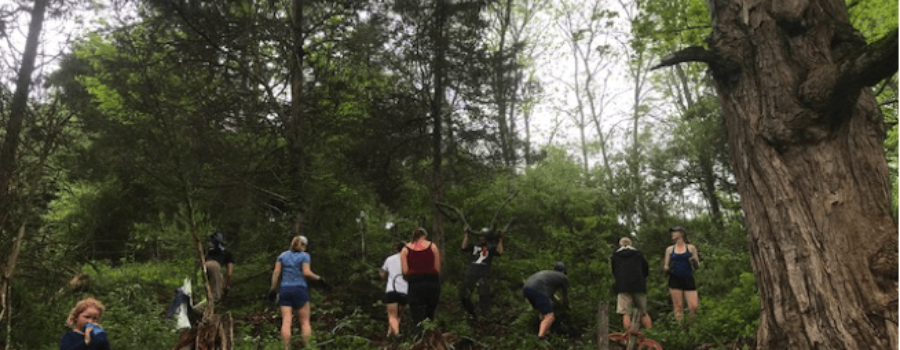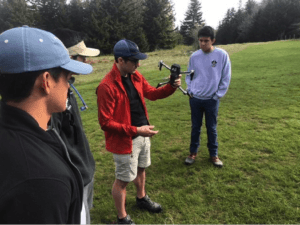It’s hard to believe that the Spring season has wrapped up on Spruce Knob when the leaves on the trees have only just begun to make their way up the valley. Before shifting to summer, Experience Learning hosted a group of sleep deprived students from Colgate University fresh from semester finals. Over the winter, I collaborated with Mike Loranty, professor of physical geography, to develop a meaningful week for his students that was not “too classy” (class-like). Mike had worked as a field instructor on the mountain in 2003. Joining us was Jeff Bary, a professor of astronomy and southern West Virginia native, whose knowledge and appreciation for old-time music and the vast dark sky made for excellent company.
Back in January when Mike said over the speakerphone that he wanted to bring drones to Spruce I gave Experience Learning Director Dave Martin a darting look to make sure we heard the same thing. Unphased, Dave continued to write down notes on the back of his envelope. I, on the other hand, was very much caught up on my uncertainty of those flying objects. Technology is one of those things that isn’t typically placed on the front line when developing a mountain learning course. In fact, it’s not uncommon we insist teachers and students leave their smartphones at home.
However, throughout our week, Mike facilitated lessons in drone mapping and aerial photography, we used GPS to create waypoints for campsites and trails and at our Sweetwater Farm campus, we installed a Davis Weather Station that can record data and will be accessible online in the near future. As our organization grows the information that was collected by the Colgate program will provide Spruce Knob Mountain Center with tangible and lasting information.
This course provided some unique discoveries. There are a large number of stoneflies in Warner Stream. Planting a border of onions around the raised beds at Sweetwater Farm keeps deer away. It’s strangely meditative to watch a drone fly back and forth through its’ mapping sequence. The Smith Cloud will eventually run into the Milky Way and will result in the development of brilliant new star formations. That East Cass used to be a very happening place, referred to as Brooklyn, with saloons, bars, and other forms of entertainment. For these students this was a big week. Their first days free from the walls of libraries and study groups, and I truly believe it was an important one.
This trip was part service learning, part outdoor experience, and part cultural immersion. These students certainly were given a healthy sampling of what our area in and around Pendleton County is known for. As an instructor, I gained a larger appreciation for what this place continues to teach us. I sit and reflect on the week and I am aware of how much I still have to learn and how this outdoor classroom can be transformed to connect these lessons with people who would otherwise never be given the opportunity.


